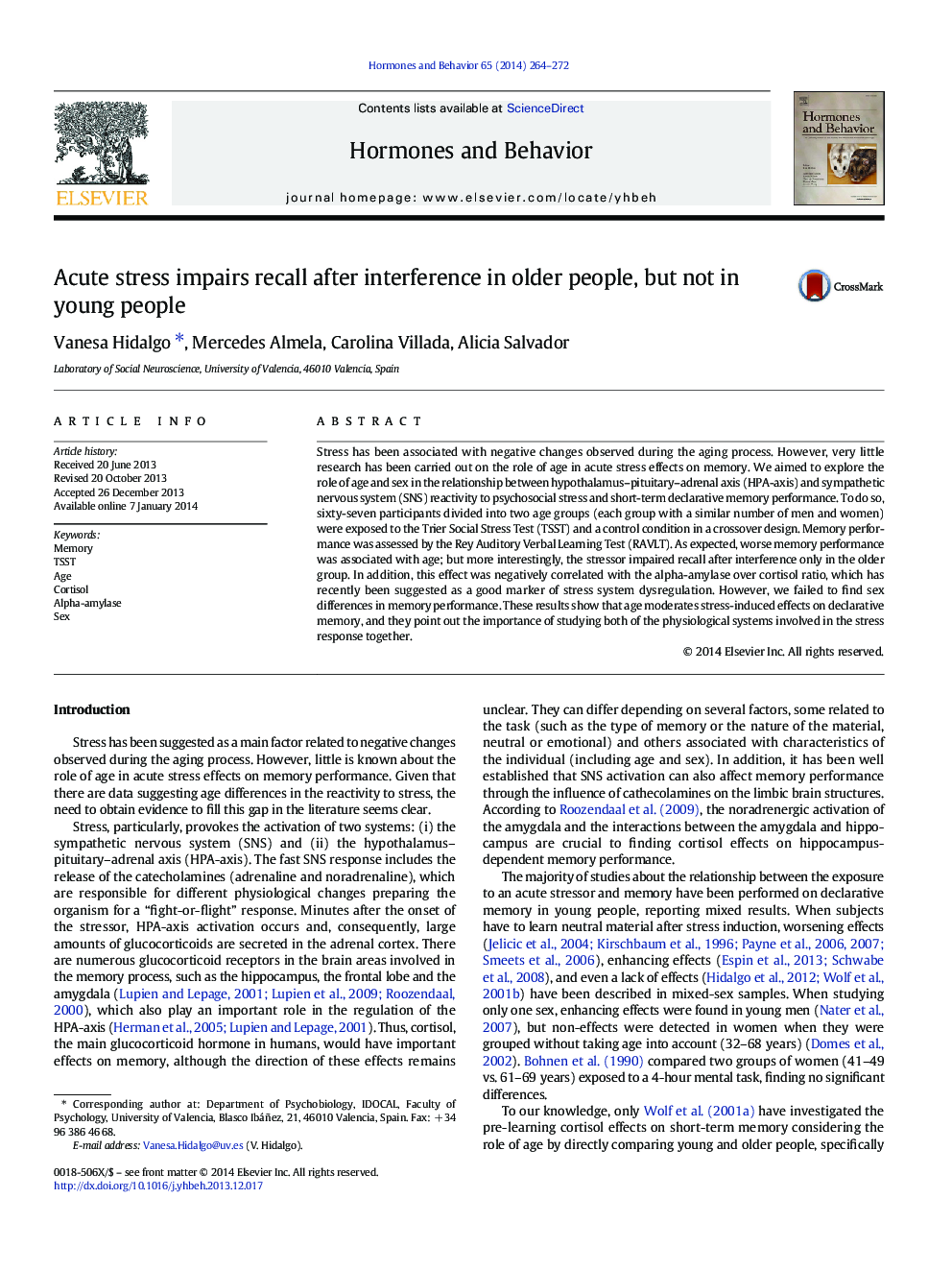| Article ID | Journal | Published Year | Pages | File Type |
|---|---|---|---|---|
| 323085 | Hormones and Behavior | 2014 | 9 Pages |
•Direct comparison of the effects of the TSST in young and older healthy people•Study of effects of an acute pre-learning stress on memory in both sex-mixed groups•Standardized test (RAVLT) was used to analyze the stress effect on declarative memory.•Stress impaired recall after interference only in the older group.•This effect correlated to the alpha-amylase over cortisol ratio.
Stress has been associated with negative changes observed during the aging process. However, very little research has been carried out on the role of age in acute stress effects on memory. We aimed to explore the role of age and sex in the relationship between hypothalamus–pituitary–adrenal axis (HPA-axis) and sympathetic nervous system (SNS) reactivity to psychosocial stress and short-term declarative memory performance. To do so, sixty-seven participants divided into two age groups (each group with a similar number of men and women) were exposed to the Trier Social Stress Test (TSST) and a control condition in a crossover design. Memory performance was assessed by the Rey Auditory Verbal Learning Test (RAVLT). As expected, worse memory performance was associated with age; but more interestingly, the stressor impaired recall after interference only in the older group. In addition, this effect was negatively correlated with the alpha-amylase over cortisol ratio, which has recently been suggested as a good marker of stress system dysregulation. However, we failed to find sex differences in memory performance. These results show that age moderates stress-induced effects on declarative memory, and they point out the importance of studying both of the physiological systems involved in the stress response together.
